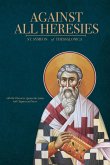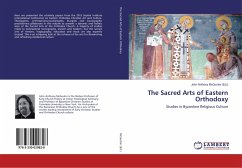Gilbert Keith Chesterton was an English writer, philosopher, lay theologian, and literary and art critic. He has been referred to as the "prince of paradox". THIS book is meant to be a companion to "Heretics," and to put the positive side in addition to the negative. Gilbert Keith Chesterton (1874-1936) is a writer like none other. As a journalist, he wrote thousands of essays for the London newspapers. But he also wrote a hundred books: novels, poetry, plays, literary criticism, history, economic theory, philosophy, and theology. And detective stories. He wrote on every conceivable subject, but his vast output is matched only by the consistency and clarity of his thought, his uncanny ability to tie everything together. In the heart of nearly every paragraph lies a jaw-dropping aphorism or sparkling paradox that leaves readers shaking their heads in wonder.
Hinweis: Dieser Artikel kann nur an eine deutsche Lieferadresse ausgeliefert werden.
Hinweis: Dieser Artikel kann nur an eine deutsche Lieferadresse ausgeliefert werden.








